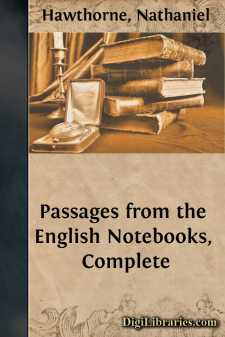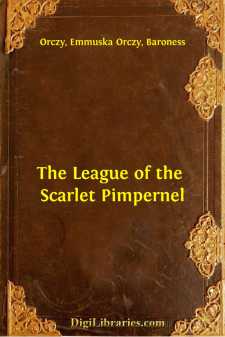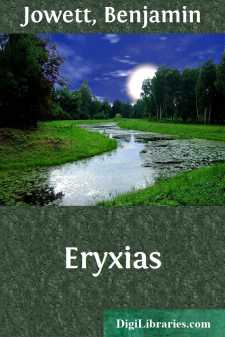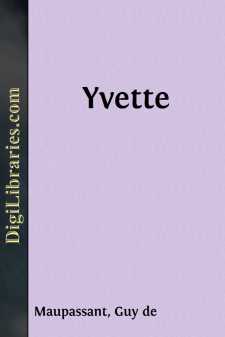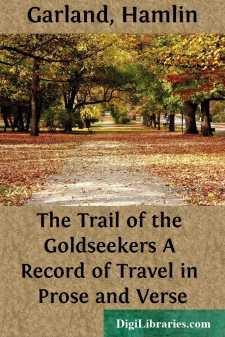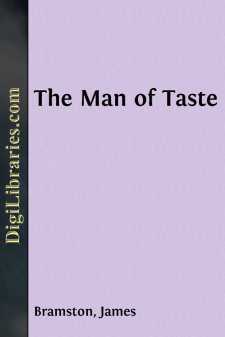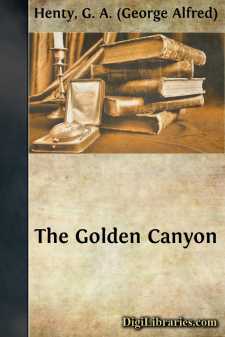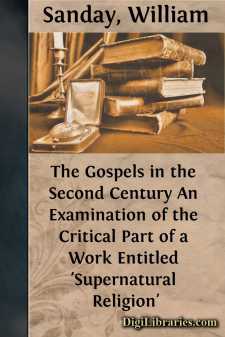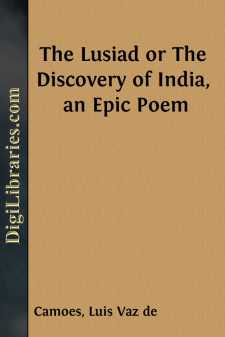Fiction
- Action & Adventure 182
- Biographical 15
- Christian 59
- Classics
- Coming of Age 4
- Contemporary Women 1
- Erotica 8
- Espionage/Intrigue 12
- Fairy Tales, Folklore & Mythology 235
- Family Life 169
- Fantasy 117
- Gay 1
- General 596
- Ghost 32
- Historical 808
- Horror 42
- Humorous 159
- Jewish 25
- Legal 4
- Medical 22
- Mystery & Detective 314
- Political 49
- Psychological 41
- Religious 64
- Romance 157
- Sagas 11
- Science Fiction 730
- Sea Stories 113
- Short Stories (single author) 537
- Sports 10
- Suspense 1
- Technological 8
- Thrillers 2
- Urban Life 29
- Visionary & Metaphysical 1
- War & Military 173
- Westerns 199
Classics Books
Sort by:
It seems justly due to Mr. Hawthorne that the occasion of any portion of his private journals being brought before the Public should be made known, since they were originally designed for his own reference only. There had been a constant and an urgent demand for a life or memoir of Mr. Hawthorne; yet, from the extreme delicacy and difficulty of the subject, the Editor felt obliged to refuse compliance...
more...
SIR PERCY EXPLAINS It was not, Heaven help us all! a very uncommon occurrence these days: a woman almost unsexed by misery, starvation, and the abnormal excitement engendered by daily spectacles of revenge and of cruelty. They were to be met with every day, round every street corner, these harridans, more terrible far than were the men. This one was still comparatively young, thirty at most; would have...
more...
by:
Benjamin Jowett
APPENDIX II. The two dialogues which are translated in the second appendix are not mentioned by Aristotle, or by any early authority, and have no claim to be ascribed to Plato. They are examples of Platonic dialogues to be assigned probably to the second or third generation after Plato, when his writings were well known at Athens and Alexandria. They exhibit considerable originality, and are remarkable...
more...
The Japanese Mason Without haste, gathering scrape of the trowel, slap of cement, reaching for a block, setting and tapping it level, turning with the wheelbarrow, graceful, sweating, freed of every moment. Kauai Sweet Hawaii Even if somebody did steal my battery, generator, oil cap, visegrips last night, I passed the test to be a taxi driver, and even if I don't have the money to buy a...
more...
The Initiation of Saval As they were leaving the Cafe Riche, Jean de Servigny said to Leon Saval: "If you don't object, let us walk. The weather is too fine to take a cab." His friend answered: "I would like nothing better." Jean replied: "It is hardly eleven o'clock. We shall arrive much before midnight, so let us go slowly." A restless crowd was moving along the...
more...
by:
Hamlin Garland
ANTICIPATIONI will wash my brain in the splendid breeze,I will lay my cheek to the northern sun,I will drink the breath of the mossy trees,And the clouds shall meet me one by one.I will fling the scholar's pen aside,And grasp once more the bronco's rein,And I will ride and ride and ride,Till the rain is snow, and the seed is grain.The way is long and cold and lone—But I go.It leads where...
more...
by:
James Bramston
INTRODUCTION For what has Virro painted, built, and planted? Only to show, how many Tastes he wanted. What brought Sir Visto's ill got wealth to waste? Some Daemon whisper'd, "Visto! have a Taste." (Pope, Epistle to Burlington) The idea of "taste" and the ideal of the "man of taste" have fallen considerably in critical esteem since the eighteenth century. When F. R....
more...
Chapter I.—A Run Ashore. In the month of August, 1856, the bark Northampton was lying in the harbor of San Diego. In spite of the awning spread over her deck the heat was almost unbearable. Not a breath of wind was stirring in the land-locked harbor, and the bare and arid country round the town afforded no relief to the eye. The town itself looked mean and poverty-stricken, for it was of...
more...
by:
William Sanday
CHAPTER I. INTRODUCTORY. It would be natural in a work of this kind, which is a direct review of a particular book, to begin with an account of that book, and with some attempt to characterise it. Such had been my own intention, but there seems to be sufficient reason for pursuing a different course. On the one hand, an account of a book which has so recently appeared, which has been so fully reviewed,...
more...
In undertaking, at the publishers' request, the function of editor of Mickle's Lusiad, I have compared the translation with the original, and, in some places, where another translation seemed preferable to, or more literal than, Mickle's, I have, in addition, given that rendering in a foot-note. Moreover, I have supplied the arguments to the several cantos, given a few more explanatory...
more...


